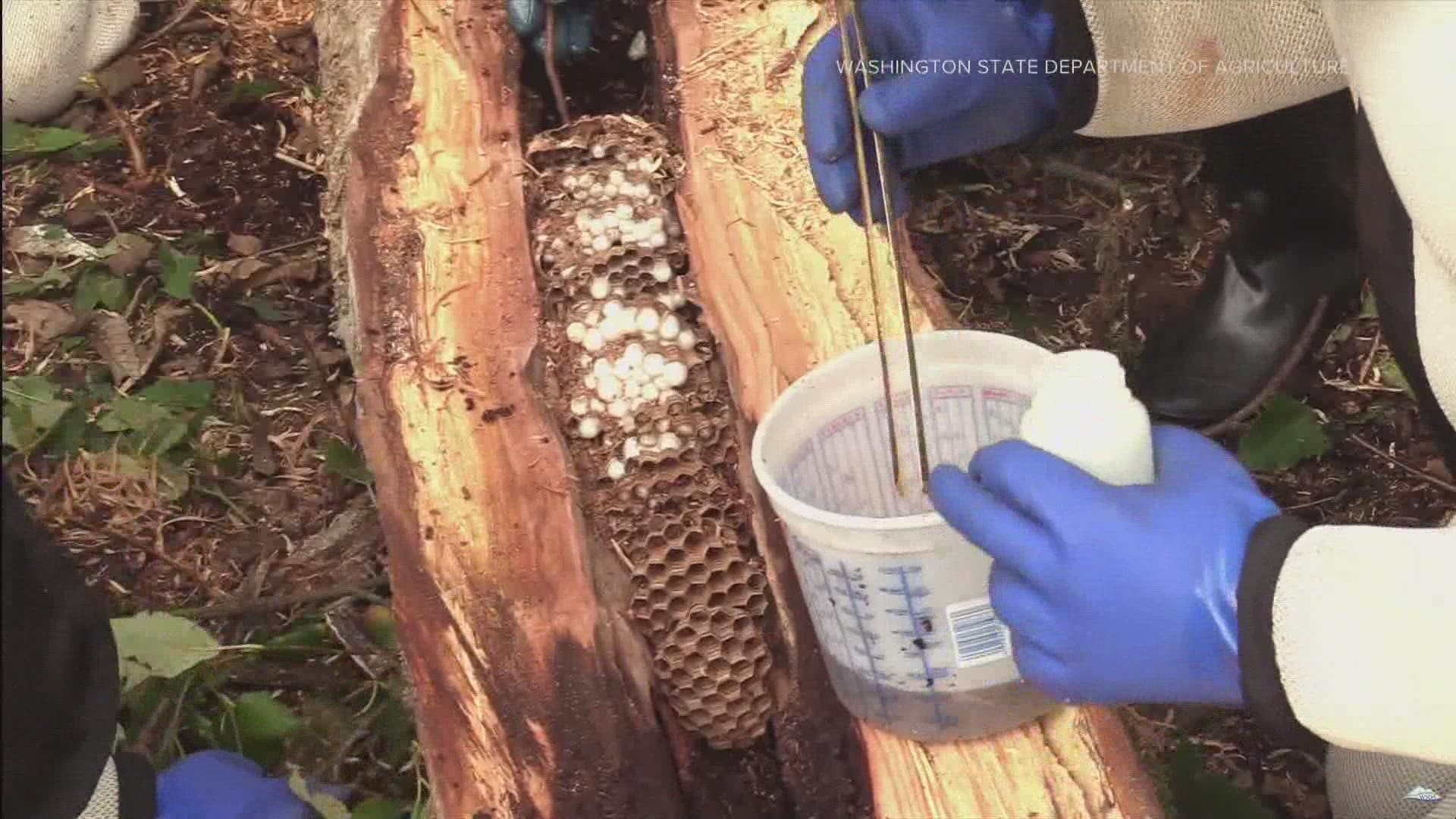WHATCOM COUNTY, Wash — The Washington State Department of Agriculture (WSDA) is again turning its attention to the Asian giant hornet.
Summer and early fall are when the invasive insects are most active, and officials want to make sure they’re ready should another sighting pop up.
The goal behind a multi-agency training in Whatcom County Tuesday was to introduce new trappers to the technology and techniques used to both identify hornets, track them to their nests and untimely eradicate the invasive species.
The Asian giant hornet is was first spotted in the United States in Whatcom County in December of 2019.
“We don’t want to live with these. We want to keep them from establishing in North America 100 percent,” said Chis Looney, an entomologist with WSDA.
The state’s Department of Agriculture said while there hasn’t been a sighting this year. Last year, they found and removed three nests, all in Whatcom County.
“We can confidently say that not a single one of those colonies was able to kick out a new queen,” Looney said.
There are still a lot of unknowns about the species. That means a lot of learning along the way, from the best ways to trap to protective gear.
If a hornet is taken alive, researchers can attach a small radio transmitter to its back and follow the signal to a hive. It's a process that starts with someone somewhere calling in a tip.
"This is a huge issue for the whole state of Washington. I’m glad we have some of the best scientists. I’m glad we have some of the best technology. And I’m really glad we have citizens that are helping out,” said Gov. Jay Inslee, who sat in briefly on Tuesday’s training.
As we approach the hottest months of the year, we inch closer to the time the giant hornets usually reproduce. The race is on to make sure that doesn’t happen.
"Every time an introduced species starts doing something unexpected - uncontrolled in an environment - it costs us money. It changes the places we live, it changes the things we love about the places we live. It is always cheaper to keep a species from establishing itself then to deal with the aftermath,” Looney said.
Crews will remain on high alert as it will take three sighting-free years to officially declare a victory in the war on the giant hornets.
If you see a giant hornet or suspect an attack on a hive, you’re asked to take pictures and report it here.

